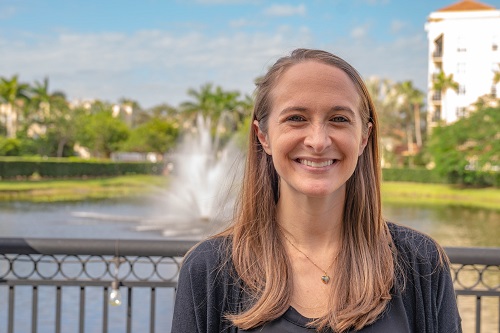By Elisa Halliley, M.M., MT-BC
The awareness of music as a healing modality is at least as old as the writings of the ancient Greek Philosophers, Aristotle and Plato. However, it wasn’t until after World War Two that music therapy was officially established as an allied health profession.
Volunteer musicians began to visit Veterans hospitals throughout the country and physicians and nurses took note of their patients’ profound physical and emotional responses. This exposed the need for more extensive training and the first music therapy degree program was born.
Music therapy is the evidence-based use of music interventions to accomplish goals within a therapeutic relationship. Within the hospice and palliative care setting, music therapists address physical, emotional, cognitive, and spiritual needs of both patients and their families.
Music therapy can help decrease pain, reduce agitation, address respiratory distress, and decrease anxiety for patients living with a chronic or terminal illness. Music therapy can also be a non-threatening way to encourage life review and expression of feelings relating to the patient’s prognosis as well as provide the patient and family opportunities for meaningful and positive interaction.
Our music therapy program at MorseLife Hospice and Palliative Care follows a patient-centered approach. Music is effective as a clinical modality because of its presence in all our lives. No matter where we’re from or what language we speak, each of us has a soundtrack of songs that connects us to former versions of ourselves. Hearing a song with lyrics that describe how we’re feeling in any given moment can be a cathartic experience that allows us to release emotions we may not have even realized were present within us.
Patients often become active participants in the therapeutic process, sharing stories and information about their lives intertwined with song. This can help facilitate a sense of closure and allow them to find meaning in their existence. Likewise, the soothing nature of rhythm and tempo combined with the timbre of a human voice or musical instrument can bring someone back to homeostasis when they’re in pain or distress.
Additionally, music therapy can be a powerful way to create a legacy for a patient’s family members. Whether it’s through songwriting, compiling a playlist of the patient’s favorite songs, recording a video, or documenting their heartbeat, we can provide something tangible for families to hold onto.
MorseLife Hospice and Palliative Care serves as a teaching facility and has recently been accepted as a National Roster Music Therapy Internship Site for students completing their undergraduate course work from an approved university. The six-month internship offers a stipend and is designed to provide students the structure to learn and grow into competent professionals. Internship openings are available beginning in January and June of 2023.
Elisa Halliley is the bereavement coordinator/music therapist at MorseLife Hospice and Palliative Care.


























